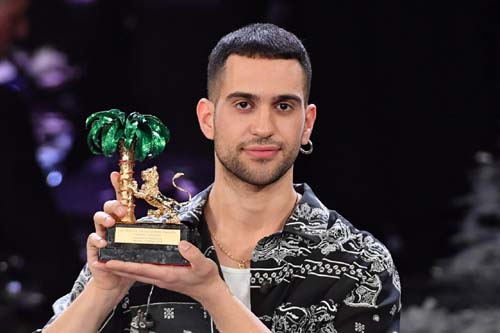Italy: How Eurovision almost ended up in Venice annually!

Venice: The Eurovision Song Contest began as a technical experiment in television broadcasting: the live, simultaneous, transnational broadcast that Europe has now been watching for nearly 70 years was in the late 1950s a marvel.
As television services were introduced in most European countries in the mid 20th century the European Broadcasting Union (EBU) created the Eurovision Network in 1954 for the exchange and production of common television programmes, in order to cost-effectively increase the programming material for national broadcasting organisations.
The proposal for the Eurovision Network had come from Marcel Bezençon, the director general of the Swiss Broadcasting Corporation. But the idea for the Eurovision Song Contest would come from RAI. The Italian national broadcasting organisation began regular television services in January 1954, although the first experimental television broadcasts in Italy had occurred in Turin in 1934.
The most popular and successful programme that the Eurovision Network would produce would be its namesake: the Eurovision Song Contest. After the Eurovision Network broadcast its first programmes in 1954 in Belgium, Denmark, France, Italy, the Netherlands, Switzerland, the United Kingdom and (what was then) West Germany, discussions ensued in the EBU as to how its co-productions could be made more entertaining and spectacular.

Following suggestions put forward at the meeting of its Programme Committee in Monte Carlo in 1955, the EBU decided at the session of its General Assembly in Rome later in that year to establish the Eurovision Song Contest. The inspiration for the Contest came from RAI, which had been staging Festival di Sanremo (the Sanremo Italian Song Festival) in the seaside resort town of the same name from 1951. Members of the Programme Committee attended the Sanremo Italian Song Festival in 1955, when it was also broadcast through the Eurovision Network.
However, Sanremo was not the only song contest in Italy at the time: in the mid-1950s, the City of Venice and RAI organised the International Song Festival in Venice. The first edition in 1955 included entries submitted by the radio services of EBU members from Austria, Belgium, France, Italy, Monaco and the Netherlands. They each submitted six songs that were original and no longer than 3 and a half minutes, with the entries being voted on by national juries and the winner being awarded the Golden Gondola prize.
The Venice International Song Festival was therefore similar in its structure to the Eurovision Song Contest, except that it was only broadcast on radio. Still, the Venice International Song Festival was the world’s first-ever international song contest based on the participation of national broadcasting organisations, and some of its participants would go on to compete in the Eurovision Song Contest.
Yet, for technical reasons, the first Eurovision Song Contest in 1956 was not held in Italy but in Switzerland: its geographical centrality in Europe made it a natural node for the terrestrial transmitters required for this experiment in live, simultaneous, transnational broadcasting. The EBU’s headquarters were also in Switzerland. But the first Eurovision Song Contest still reflected an international fashion for Italian popular culture, as it was staged in the Swiss-Italian city of Lugano and was hosted in Italian.
Two years later, the Eurovision Song Contest highlighted the global influence of Italian popular music once more, when one of its entries was Domenico Modugno’s Volare, which had won the 1958 Sanremo Festival. Volare conquered charts from Europe to America and Australia, becoming the world’s biggest-ever non-English language hit. In doing so, it made the Eurovision Song Contest more famous worldwide, leaving yet another ‘made in Italy’ imprint on the creation of the Contest.





